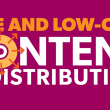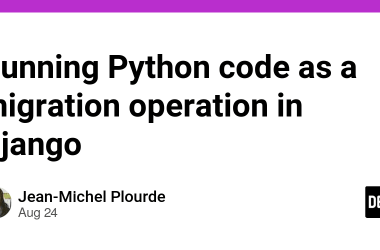You’ve probably come across the usual suspects like GitHub, VS Code, and Docker, but today, I’m diving deeper. These tools aren’t just practical; they actually solve real-life challenges that developers face.
Here’s a collection of 10 tools that will actually make a difference to your workflow:
1. Raycast – Speed Up Your Workflow
It’s a macOS app launcher, but way smarter. Need to run a script, find a file, or even interact with GitHub? Do it all without touching your mouse. The real beauty of Raycast is its extensibility — you can add custom scripts or extensions to supercharge your specific workflow.
Every time you minimize your IDE, hunt for files, or switch apps, you’re wasting time. Raycast keeps you in the flow.
2. Insomnia – API Testing Without the Pain
Sure, there’s Postman, but if you’re looking for a lightweight, intuitive API testing tool, Insomnia is the way to go. It’s less bloated and focuses on what matters—making your REST or GraphQL requests quick and easy.
It’s all about simplicity. The quicker you can test, the quicker you can iterate.
3. Linear – Make Project Management Not Suck
We all dread project management tools. They feel like overhead, but Linear strikes a balance. It’s a clean, fast, and modern tool for managing tasks, tracking bugs, and managing sprints. It integrates beautifully with GitHub, Slack, and even Figma.
Developers hate wasting time on overhead. Linear keeps the overhead low, so you can focus on coding.
4. Sourcery – Automated Code Reviews
Imagine an AI-powered tool that reviews your Python code and suggests improvements instantly. That’s Sourcery in a nutshell. Whether it’s refactoring or enhancing readability, it works in the background and offers suggestions in real time as you code.
Think of it as a second pair of eyes on your code — one that’s fast, accurate, and doesn’t take breaks.
5. Warp – A Terminal That Finally Feels Modern
Warp is a Rust-based terminal that’s built for speed and collaboration. It’s like your regular terminal, but smarter — it has features like block-based output, autocompletion, and sharing commands with teammates.
Why wrestle with clunky terminals when you can have one that understands how you actually work? Warp makes terminal work less tedious and more intuitive.
6. Loom – Document Your Work Visually
Ever had to explain a piece of code to someone over Slack? How about just recording a quick video instead? Loom lets you capture your screen and voice in seconds, creating a video that’s easier to digest than a wall of text.
Instead of spending 10 minutes typing out a message, you can record a 1-minute video and get on with your day. No more “Did you mean this?” or “I didn’t quite get that last bit…”
7. Obsidian – For the Developer Who Takes Notes Seriously
If you’re the kind of developer who’s constantly jotting down ideas, documenting your own code, or tracking your learning progress, Obsidian is a lifesaver. It’s a note-taking app that functions more like a second brain, linking notes together in a way that makes information retrieval effortless.
You can keep track of your ideas and your codebase in one place, without feeling like you’re drowning in a sea of notes.
8. Figma – Yes, Even Developers Need Design Tools
Figma isn’t just for designers. If you’re working closely with design teams or need to mock up a quick UI for an app, Figma’s real-time collaboration features are unbeatable. And the bonus? You don’t need to open up five different tools to communicate design changes.
You know the drill: “Can you just nudge this button 5px to the left?” In Figma, you can do it yourself, and suddenly that back-and-forth is cut in half.
9. Todoist – Manage Your Day Beyond Code
You’ve got to ship features, review pull requests, and fix bugs. But hey, you’ve also got a life outside of work (hopefully). Todoist is a great tool for managing your personal and professional tasks in one place.
A task manager that helps you juggle everything from code reviews to picking up groceries.
10. Tabnine – Autocomplete That’s Actually Smart
Autocomplete is great, but Tabnine takes it to another level. Powered by AI, it predicts entire lines of code based on the context. It supports almost every language you can think of, making it a handy tool for any developer looking to save time and reduce errors.
Less time typing means more time thinking about the logic and structure of your code.
You’ve probably already heard that developer tools are supposed to “make your life easier.” But in reality, some tools create more friction than they solve. The ones listed above don’t just look good on paper; they’ve been battle-tested by devs like you and me.
Whether you’re looking to streamline your workflow, reduce cognitive load, or just make your coding life more enjoyable, these tools will make a tangible difference.







